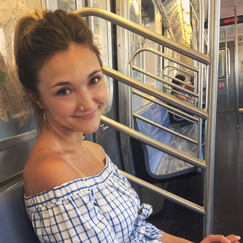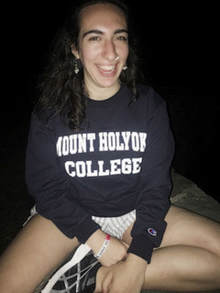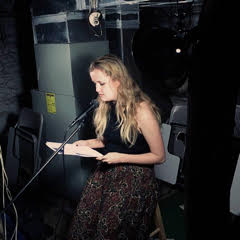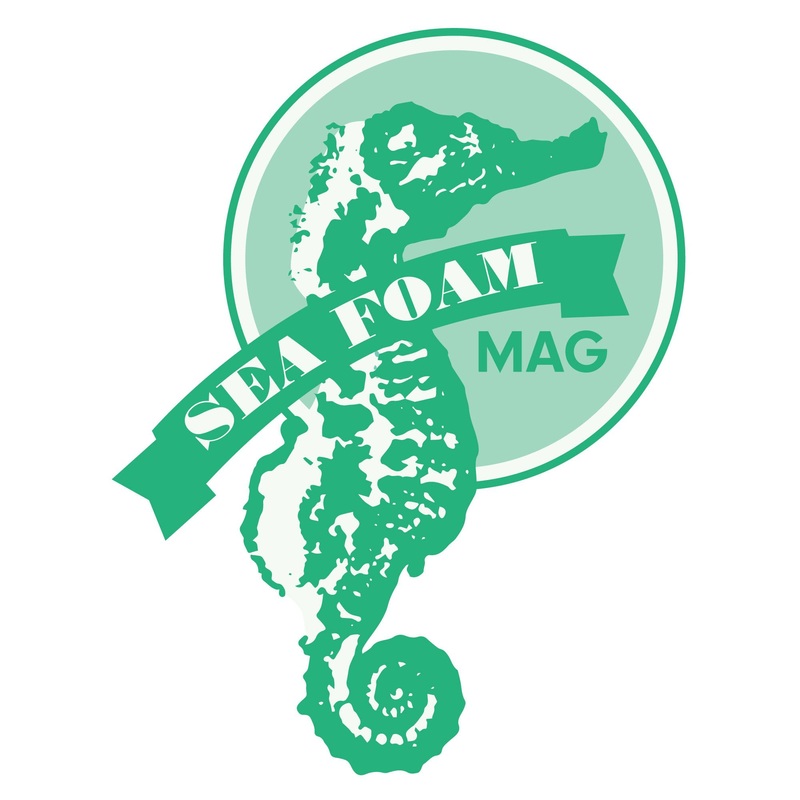|
The sourness of death had barely filled the room when the dogs began to whine. The expression of dying is always the same drawn, blank stare, no matter the person. The mouth is the worst part. The fading brain instinctively slams neurons together, demanding the pull of breath, resulting in mouths that gape and gasp, exhausted by stiff lungs that have already forgotten the sweetness of air. Luke had been in the room with his aunt, forced himself to feign comfort to her by touching her bare, withered arms, the veins strained under the paper thinness of her skin. Shifting into the final phases of life, the body seems to pull the blood from the face and extremities to supply the heart with a few last pulses. The skin stretches across the sockets and lips, smoothing the face into an unrecognizable mask. But she was still in there. A once healthy 50-year-old woman, as optimistic as she was broken. The slivers of two failed marriages and abuse calked the pieces of her heart together as it pumped, cheery as a caged lovebird, the promise of one day finding her grand love. Luke had camped out in her living room for five days along with his cousins, and her first ex-husband. Choosing to die at home meant confronting the realities of the eroding body without the sterile calmness of a hospital. IV bags had a particular, measured smell in her bedroom with no air filter, plastic mixing with blood and sweat and fear. Keeping her comfortable became the main focus of the group. They would roll her on her side until the red marks would soften from the sores on her back. They would change her clothes, wipe her mouth, and rub cucumber melon lotion into her skin. When her pain became too much, they medicated her with morphine, themselves with whiskey. Her ex-husband had killed a man once during a bar fight two decades ago. He threw the man through a window, where he landed skull first on the curb, dying instantly from head trauma. From that day on he never touched another drink, until now. As he twisted the cork off the bottle, Luke didn’t feel the need to lecture, as they were all attempting to function in this vicious world of death and decay. As a young woman, his aunt was breathtakingly beautiful. That was the curse of the women in his family; they were born with beautiful faces and bodies, but died before they could grow old. They were forever immortalized not as cancer victims, but as the sirens that could pick locks and sneak into garages, flanked by the men who surrendered their hearts to them. Luke remembered these women as the ones who showed him how to dance, to match his socks to his tie, and how to compliment a woman without sounding trite. As he watched his aunt breathe slowly under the bed sheet, he remembered her kindness and her affinity for gift giving. Unable to find peace in love, she had settled for the man who sat beside her now, polishing off a bottle of rye like water. He gave her a son when she was just 17, another at 19, then ran off when they were small. Lee, her second husband, had married, divorced, and remarried her several times over ten years. She was a good candidate to manipulate; desperate for attention and willing to cleave red flags into halves like Moses. His only constant was his deceit. He slithered through their days together, slowly suffocating her love with all the strength he could muster. Once he had gorged himself on her adoration, he would slink away into the shadows, not to be seen until he was hungry again. After her family took over her care, Lee disappeared. He never once came to see her in the hospital, nor did he stop by the house or call to check in. Whether it was despair over losing her, or the inability to process dying, no one knew. In turn, he was not there on the day she pulled her last breath, when the room seemed to close on itself. The air seemed to whip through the house, raising goose bumps on the family and lifting the ears of the dogs. As her heart stopped, so did the shift in pressure. For a moment, no one moved. The rush of finality had deafened everyone. Three days later, Lee blew his brains out in his living room. ✱✱✱
Have you heard / I am breathing flowers in / I am a boy with his face peeping into the folds of his mother’s saree / Can he climb back in / Have you heard / a dandelion was massacred by the wind / when they carried my body by, my hair went wild / there I was, a corpse bride / Have you heard / I am spectral again / once I went to a funeral / no not mine / and there were weeping women in white / and red poinsettia flowers / I thought the difference would mean something / but it does not. Have you heard / my mouth was once sewn to yours / we spoke in the same language / after all / what else is a ghost / but a hidden tongue? / Have you heard / Tagore / ‘It is better to die once / than every day’ / all day / as the sun stammers in / turning paper thin skin / into pale milk / wordless again / Have your heard / death is only translation of matter / someone else is speaking now / listen. ✱✱✱
"I work with a variety of art techniques, but enjoy working with traditional cut-and-paste collage and illustration the best, because they allow my creativity to flow. My work merges fine art and design, while exploring themes of the feminine in nature, dichotomies, and transformation. I use beauty and restraint as refining lenses through which to focus and bring elegance to a subject. While I experiment with a variety of materials and processes, reoccurring motifs provide discernible cohesion between many of my works." ✱✱✱ Jessica Dame is an artist and freelance illustrator based in Columbia, South Carolina. Originally from Virginia, she grew up on the Chesapeake Bay and spent her days organizing her sticker collections, crafting illustrated stories, and drawing sea life. Largely self-taught, she graduated from Christopher Newport University with a Bachelor of Art in Art History and from the University of South Carolina with a Masters of Library and Information Science.
The natural world, vintage fashion and illustration, children’s book illustration, and graphic design are among Jessica’s strongest sources of inspiration. Jessica works in mixed media and has a particular love for ink, watercolor, gouache, and traditional collage. Under the moniker of Lady Dame Prints, her evocative designs appear on greeting cards, postcards, and stickers. Her work has been featured on Skirt! Magazine, and she has exhibited in Virginia and South Carolina. The pond is frozen and I keep wondering if there is enough love left in the world or if it’s running out. I am a sieve, love runs through me, pours out, rolls down the drain, into Bigger, braver containers. ✱✱✱
They were closer, now. Marie turned over on her bed and listened for them. She pulled her sheets up over her body and then threw them off again, letting them fall to a heap on the floor. She got off her bed and walked over to the mirror. She stared at it for a while, looked down at her own body and decided it wouldn’t do to be naked. She opened her wardrobe and thumbed through her dresses, running her fingers – greasy and unwashed - over the soft fabrics. She took a few out and laid them on the floor. They were soft to the touch, and all brightly coloured. They had not been Marie’s favourite, in life when she preferred simpler colours, bold statements in black and white, but now these floral dresses seemed appropriate. Marie could hear the Coyotes now. She didn’t like the way their whines were overcome by the softer, sweeter cries that hung in the air. She wished their approach was somehow more measurable, and felt a strange nostalgia for the coming of a storm, where she could count the seconds between the thunder and the lightening, and guess at the distance. She couldn’t quite imagine coyotes mixed with lightening. Marie turned to the dresses on the floor and sorted through them. The blue one, she decided, was too simple and too sad. The pink-and-green one was too childish – it reminded her of a children’s birthday party. The red one felt the sweetest, but Marie worried it might be too bright. She didn’t want to wear anything that might distract from her own features, which she had often been told were distinctive. Marie eventually settled for the lilac dress she had bought two years earlier for a fairy themed fancy dress party. She had changed her mind about wearing it on the day, she remembered, and instead had gone for something tighter and simpler. She had been complimented on that. Marie turned back to the mirror and squinted until she saw something. She put on a light peach lipstick that matched the lining of her dress, and a thin layer of foundation. She kept the eye makeup light and didn’t bother at all with her contact lenses. The Coyotes would come close enough to see. Marie made her bed and lay down on top of the sheets. It was a warm still night – she was not cold. She tried to cross her arms over her chest as she had seen at Catholic funerals, but it felt uncomfortable. She put her arms by her sides, and set her mind to listening. The Coyotes were certainly close now, within a few streets of Marie’s home, and at such close distance Marie thought the human crying was a little more piercing than the animal’s calls. This frustrated her. She didn’t want to be thinking about people when she died. After around fifteen minutes Marie thought she could recognise the sounds of a family. The Callaghans, three doors across from her, were beautiful and polite, Mr Callaghan always sweeping away to office meetings and late night partied in his slick designer car, Mrs Callaghan always laughing and gasping, and styling her hair like some sort of movie star. Perhaps she had almost been one, at some point. Marie did not think her neighbours’ screams belonged on the big screen, however. The woman’s were too low, and the man’s too high. Even the little boy – now school age – sounded wrong. He was too babyish, thought Marie a little sadly, he didn’t sound right for his age at all. Marie sighed and comforted herself in the Coyotes’ proximity. She was sure she had only minutes left, and then they would come, then they would take her and it would all be done with. She took several deep breaths, in and out, and tried to keep calm, tried to keep still. She sucked in her stomach and pushed out her breasts. She wanted to look appetising, somehow. She wasn’t quite sure what a Coyote saw as appetising. She licked her lips, and waited. But nobody came. The pack had moved on, scouring the streets for families to stake out, for game to hunt. An individual waiting patiently wasn’t worth the bother of coming indoors. Marie was close to tears. She was sure their calls were growing further, as they grew deeper, once more taking dominance over the human weeping. Marie sat up in her bed, readjusted her hair. She sighed and looked around, considered going to the window to see the carnage, or heading to the streets to track down a Coyote herself. But then – Footsteps were padding their way up her staircase, heavy, and uncomfortable, unused to such narrow passages. Marie heard a yawn, and then she heard a growl, and then she heard a gentle, rasping sniff. Coyote pushed at her door and it opened. He stared at her, smiling, his long tongue running over his teeth, hanging out the side of his mouth. Spit dribbled from his chin and fell into dark, grey droplets on Marie’s floor. ‘That’s going to stain the carpet,’ she thought. *** Coyote pounced on her, ripping her dress and flesh in two. His golden jaws tore off her peach tinted lips, and he grabbed at her chin with his paw, lapping up the blood. He liked the lilac colour – she had been right about that – and ripped away at it to get into Marie’s stomach. Coyote discarded the skin, and sucked up the fat, the meat, the muscle. His head bobbed up and down against her, and his teeth flashed and gleamed. He sucked up her waters and swallowed her intestine whole. She was a good meal, and, caught behind the pack, he had been left hungry. Coyote smiled again, and stared ahead, glanced at the heap of wrinkled dresses on the floor. He picked up Marie, and tossed her over his shoulder, her perfumed skin making him a pretty little coat, protection against the hot, hot sun. Wearing his conquest, Coyote marched outside. He bent his knees and raced out after his pack, Marie’s unpainted fingernails clicking gently against his teeth. ✱✱✱
she is pink in the sun and i am awful yellow tinted maybe olive, maybe piss maybe the bricks are red for the same reason i am hazel eyes and bitch face maybe i could make giraffes punk or write her a love letter; for myself, for someone so entire-bag-of-chips sad i am entire-bag-of-chips sad very often actually, and planets drawn in blue on my piss skin a thought on conversation: maybe our first drafts live in the brick cracks of our brains with doodle suns and crumbs exfoliating all our doubt ✱✱✱
if i smoked a whole gd joint rn id fall asleep all of my food rots on the shelf i just like having choices baths dont actually get u cleaner u just stew in yr own filth time gets approached as condition for failure time gets approached as something subjective time gets approached as something learned i swear it’s cool come on over ✱✱✱
The truth is, I speared the pond with the rubber ram of my boot. The pane, saying solid but not staying so. Roots glide across the ground on wooden stomachs. They try to twine with my fingers, but I plant my hands in my lap. When I went to your house, I fell in love with the way you made scrambled eggs. You tap the fork against the shell like you’re playing dolls: a neighbor with tined thistle in her hat, a rap at the door. I yawned over your shoulder, never tired of this. As you read these words, you have the brightness so heightened, you can’t see your face in the screen anymore. I can’t write any lines about your lover. He must be nice. I apologize: I wore your house keys as a necklace, like ivory tusks tugged from the rooms’ elephant. ✱✱✱
BODY INTO FLAMEthe only reason i have ever capitalized letters in my poems is to make my work more submittable to literary publications. it's starting to make me hate myself a little. it's very grey but the lawn is green, because the grass is drinking the march rain instead of collapsing under february snow. although, it was 77 degrees out last friday. i sat in a hammock on a hill it was nice. anyway, it's grey. i never look at the air to see if it is raining i look at the ground and if the puddles move i'll know. what will the april showers bring this year, i hope it's candy. mayflowers bring pilgrims, was the end of that saying. because they taught us colonialism meant the birth of nations and not the end of peoples. will may flowers mean the end of my body? i hope so. and i hope there's candy in hell. SWALLOW ME WHOLEi’m out of oranges / drinking water out of a green bottle / i got up late today again / can’t stop smoking / can’t help myself / i’m going to the library / it’s snowing and it makes me feel purple / someone fixed the front door lock and / i have no idea who it was or when it happened but / i’m not scared of burglars now / i’m not alone in the house / i’m not hungry / i have problematic eating habits / it’s march but i still feel like january / and i always write poems in january / i ate all my oranges / peeled the skin back with my fingernails / which i cut too short this time / they don’t make the same noise on my guitar strings / i want to sing into a microphone / i’m not scared of how other people / make me feel / that’s a lie / but i’m no longer scared of their / bodies / or their / eyes / i’m not hungry ✱✱✱
It snowed when Amelia was younger. Once, just once. It wasn’t the snow she heard about from the legends. Like powdered sugar, they told her. Like shredded coconut. It was greasy and smelled wrong, left stains where it landed. Came down in oily clumps. It could not be made into snowballs or snowmen, like the kind she saw in old pictures. It didn’t stay long, either. Couldn’t. Not under their sun, blue and blistering and belligerent. But for the time that it was there—hours, she thinks, or maybe just thirty minutes—she and the other children took advantage of it, thousands of footprints circling the streets, five-year-olds who forgot what “cooties” meant, who held each others’ hands as they skipped and sang and drew pictures in the snow. Mothers were crying, taking pictures, recording the moment (as if any footage would outsurvive them) but the dream was there, alive for the first time in years. “—Just so glad they’re alive to have this,” Amelia heard a mom say. And later, “You know this is the last one we’ll ever see.” Now, seven-year-old Amelia is reminded on a regular basis that they are fortunate enough to be alive. “I didn’t think we’d last this long,” a mom tells her. And a chorus of them, all asking, “Isn’t it beautiful, baby?” She assumes they mean their survival, their breathing in sacks of heat, their lungs blackened and charred like the burnt ends of some long ago beast. She doesn’t feel beautiful though. She feels tired. And hot. And exactly like everyone else. All of them wearing white, always. Cotton so thin you can see each other’s bellies, sweaty and slick from the sun. You will all likely die in the next five years, maybe sooner. We don’t tell you this to scare you, we tell you this because we don’t want to give you false hope. This is the world you were born into, before we knew what was happening. We’re sorry. But if it helps, you won’t die alone. We’re all going to die with you, right by your sides. Their version of school. That and storytelling. Lots and lots of storytelling. Stories from old planets, breeds that had died from extinction long before Amelia was even conceived. Stories from the older generations, stories that they promised were true but sounded like fairytales. Until the snow. Amelia would have sworn it was a myth until it happened. It was like nothing the adults described, but real all the same. Snow. Her favorite memory. And then, just like that, on the cusp of her eighth birthday, the sun gave out a great yawn, as if he, too, was tired of waiting. The constant lookout for that inevitable great burst of fire. But it wasn’t great. It wasn’t all at once. It started with the trees, the slow becoming of ash. Small sporadic bursts of fire, flames that licked the dust beneath their feet until they had no choice but to run and hide . . . where? Nowhere, nowhere to go. Lakes were evaporating. Oceans were a myth. Trees were burning torches, impossible to climb. So to the houses they went, to the tops of roofs, the “nonflammable” constructions. But nothing was immune to their sun, not really. Their homes were built to give them time, if only a minute or two. Just long enough for a few last words, some tearful embraces. Just long enough to pay witness. From her perch on the roof, Amelia watched. Waited. Moms cried in the background, a collective. There were children by their sides, curled up like tortoise shells. Some took pills, a softer death. Some sang. But Amelia stood at the edge until her face got hot, until everything turned to ash, and as the sun got bigger and closer and the world flared up and out, Amelia watched the white hot specks of burnt things fall around her. Like snow, she thought. Like the snow they first told us about. She could feel it, the tips of her fingers turning, and suddenly she was ready. Ready for the fire, for the white-hot act of a final breath. Ready to become her favorite memory. ✱✱✱
|
Archives
March 2020
Categories
All
|





